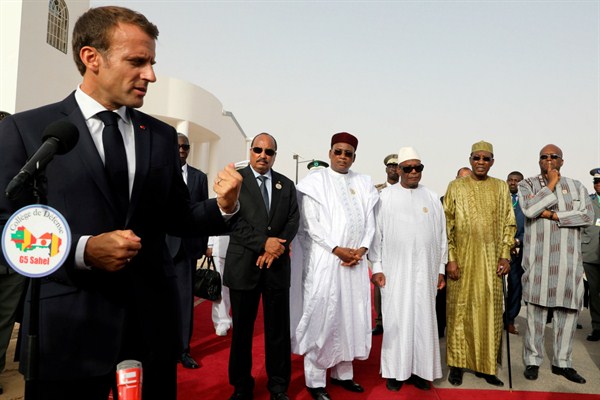Editor’s Note: Every Friday, WPR Senior Editor Robbie Corey-Boulet curates the top news and analysis from and about the African continent.
It’s been a rough few weeks for the G5 Sahel Joint Force, a counterterrorism initiative involving five West African countries that launched its first deployments last November. A series of recent setbacks have exposed indiscipline within the force’s ranks, the severity of the security challenges it faces and a lack of political will to ensure it succeeds.
First, the U.N. mission in Mali, where the G5 Sahel is headquartered, reported last week that Malian members of the force “summarily and/or arbitrarily executed 12 civilians” at a cattle market last May, apparently in response to the death of a soldier. The news cast a harsh light on the ability of the force’s leadership to control its fighters. This week, there were unconfirmed reports in the Malian press that Malian Gen. Didier Dacko had been removed from his post as force commander as a result.
Then, last Friday, Islamist militants armed with rockets and other weapons staged an attack on the force’s base in the Malian town of Sevare, killing multiple soldiers. That attack and separate strikes targeting French and Malian soldiers were claimed by an al-Qaida affiliate known by its acronym JNIM. At the African Union summit hosted this week by Mauritania, a G5 Sahel member, Mauritanian President Mohamed Ould Abdel Aziz said the attack in Sevare “exposed serious security failings.”

